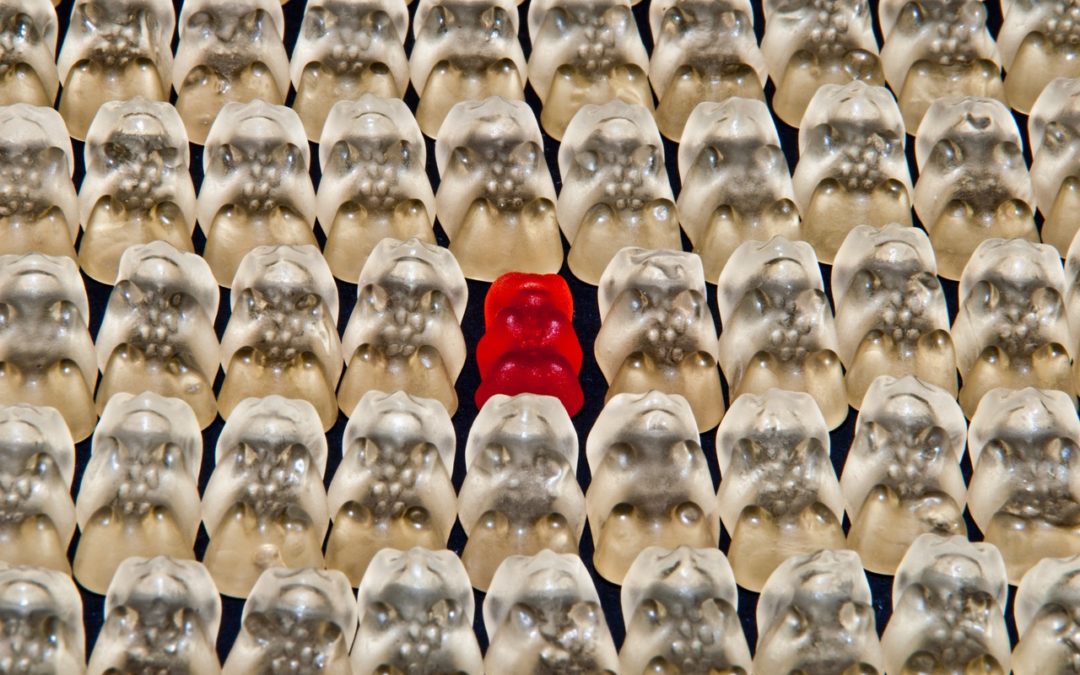There seem to be an endless amount of choices for an endless amount of products in the world today. As proof, go walk the milk aisle in a grocery store and tell me how many choices there are. Probably more than you would have guessed.
There are the obvious differences like skim, 1%, 2% and whole milk. Then there is are size differences like gallon and quart, but if there were only these choices, why are there so many different brands? There’s a store brand, a medium priced brand and a high end brand with a few others sprinkled in. All of this for milk, which by all practical purposes is a commodity.
I had the chance recently to talk to someone who was on a committee that regulated milk in Colorado, and to say the least was surprised to hear her tell me that there is no difference between the milk that goes into all of the different containers provided by all the different sellers of milk. That is, if you put 3 different gallons, sold by 3 different sellers of 2% milk in your shopping cart, the milk inside each container is the exact same. And she was very proud to tell me that this is what her committee did. They ensured that each seller of milk put only the same milk into their different container before selling it. Come to find out, milk is one of the most regulated and tested foods you can buy according the Western Dairy Association.
Why then is our perception that milk is different in each container? Is it because the container is different? Maybe because the label looks different? Or perhaps because of the advertisement and coupon in your hand makes you believe it is somehow different.
The point being, no matter how commoditized you may feel your business is, and no matter how hard it seems like you aren’t any different than your competition, you need to work to set yourself apart and be different, and if sellers of milk can find a way to do it, you should be able to do the same thing for your business.
Many business owners struggle with defining what makes their business different, which I think often times comes from a sincere sense of humility saying, “I may work hard, but don’t really think I’m all that special”. Whether you struggle with this or not, the simple truth about what sets so many businesses apart is perception. What can you do to create the perception that your business is somehow different from the competition?
One of the easiest way to set yourself apart is with the experience you provide your customers. This is your personal touch. Your thumb print on how you do business. It’s your opportunity to share with the world how you have taken the time to be different, and it’s the easiest because it flows from the core of who you are.
There are 4 steps to differentiate yourself:
- Discover – Find what you’re already really good at. If you don’t know, ask your customers to tell you what three things keep them coming back to you. Figure out the top two or three common things and that is what you’re already really good at.
- Accentuate – Determine how you can accentuate these things in your business. If you’re good at making quick deliveries, how can you make this a key part of your business? If you’re really good at being accurate with processing orders, what can be done to make processing orders a core element of who your business is?
- Communicate – Let everyone know what you’re really good at. We believe one brand of milk is better than another because we’ve somehow been told it is. This can be a basic as the price and the feel of the packaging in your hand. It can be as complex as an advertisement during the Super Bowl, and should probably be somewhere in between.
- Validate – Let everyone know why its important that you’re different in this way. You don’t want to invest time, energy and resources into being different, and then not back it up with your actions and the core values of who your business is. Every time someone bumps into your business they should walk away with the sense that your company truly believes that what sets you apart is important.
It’s important to understand that there is a life cycle to most things that set your business apart. While in the beginning, it will be a competitive advantage, it may not be sustainable for very long. A truly sustainable competitive advantage comes from things like intellectual property and trade secrets. So, unless you have something that will truly make what sets you apart sustainable, you’ll need to continually be in the discovery phase of what else are you really good at, and finding new ways to accentuate these differences.
To download this article as a PDF, click here.

